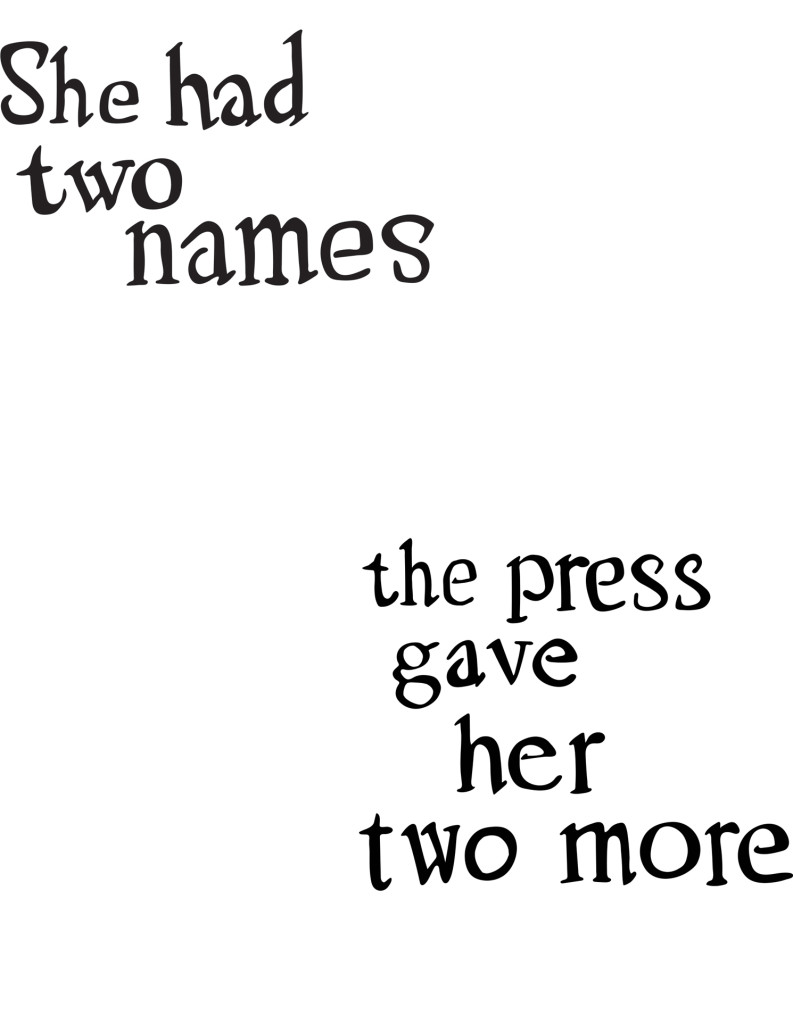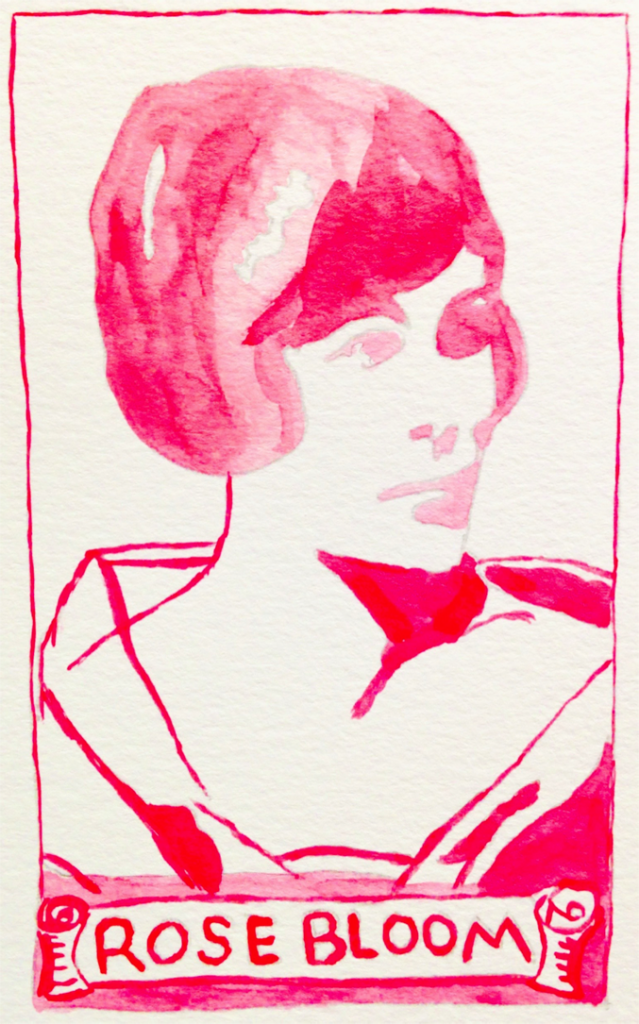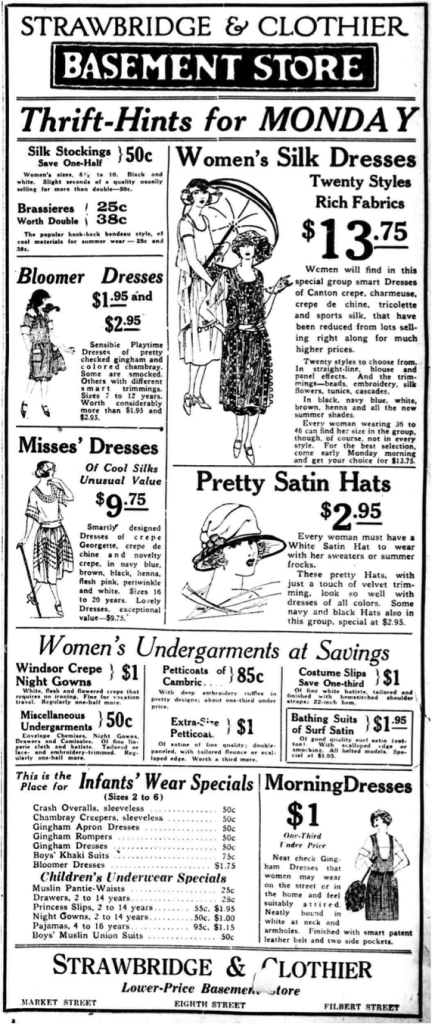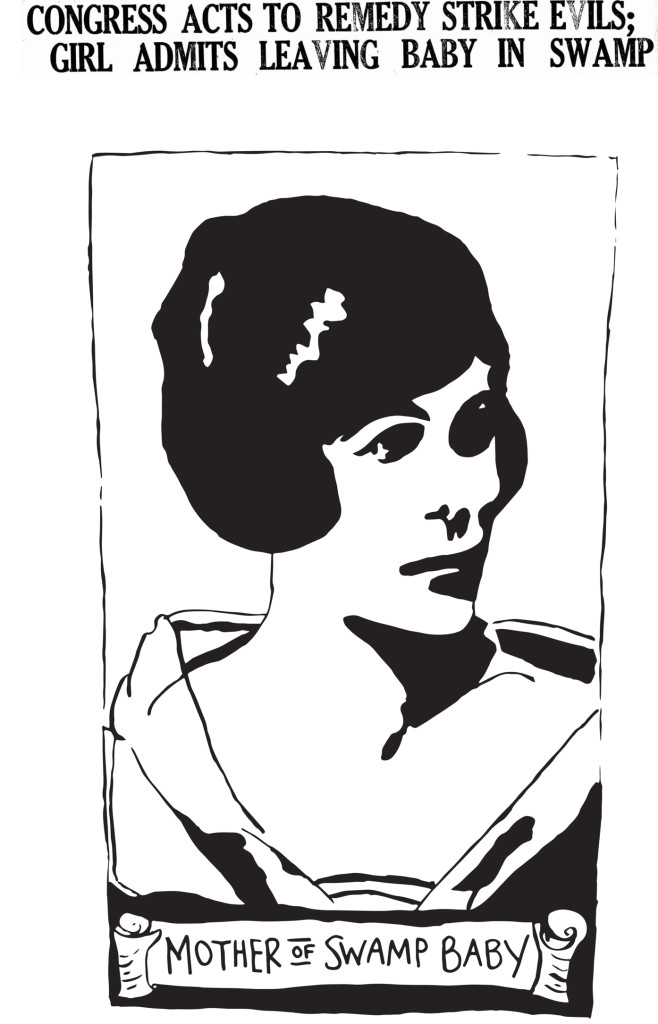Abandoners
Causalities are comforting, even if they’re tenuous. Four days after the fevered twelve made the paper for their unflinching devotedness, Leah Silver was held without bail for abandoning her daughter Ruth on Coney Island Saturday, July eighth.



Leah Silver was born and lived until age nine in Hull, England when she immigrated to Lynn, Massachusetts in 1913 on the Mauretania. She may have had a twin named Betsy, or it could have been that a British Census worker wanted to go home, and counted Ruth’s friend as such. Betsy is listed on the 1911 census of England and Wales, a bracket and twins penciled in on an otherwise inked form next to Betsy and Leah’s names.

On the 1920 National Census, in Massachusetts, Betsy has disappeared.

Leah met a sailor, got pregnant, and then had Ruth in March of 1921. I came out of the Bar Harbor Hospital with a nameless girl in my arms. Ruth’s father retreated onto his ship and disappeared. Leah worked when she could, but when she ran out of people willing to watch Ruth for small amounts of money, when she was turned away from charity homes in Boston, she decided to take Ruth to New York and try to place her in a home for children there.
They took a train to the city and stayed at a rooming house on 80th near Lexington Avenue. She gave a fake name. And this is where the multiples come back in.
There are two stories of how Ruth was found in the marsh of Coney Island Creek.
One account says that a young boy found Ruth in the marsh, that he took her home to his mother who thought the dots that covered Ruth might be small pox. His mother called for a doctor to look at her, the doctor determined they were mosquito bites. I confuse this part with the story of the girl in Manhattan who was found murdered in a cellar, the way they had to call a doctor to really determine what they thought they saw in the far corner.
There are some people who can look at bodies, bodies that need diagnosing, all day. I torture myself with an image search to figure out what the rash under my arms could be. My knees weaken, elbows tingle—I have to close the window and hope I will get better.
Some articles say a young boy found Ruth. Some say this boy was an iceman. One just says a milkman noticed her in the marsh.
One printing of the account with boy as iceman says he found her with a goat that simply stood by the crying baby and watched it sadly.
Ruth was found on a small marsh island on top of newspaper. They thought she had measles, she gulped milk, was swathed in medicated cloth.
He picked up Ruth, he whistled to the goat and set out for dry land.

Leah, people say they know you, that they’ve heard your name before, but I don’t believe them. Not that you don’t warrant knowing, but I’ve looked everywhere—the only place you exist publicly is in newspaper archives and two census forms, a record of a ship’s passage. Leah, if I were to believe my sources I’d say you ceased to exist once you were freed and reunited with your children, but I know that isn’t true. Leah most days I can’t write about my own life because I am perspective-less, my face is on the freshly turned-off screen and I am licking the static to feel how it feels. Leah I bet they heard a story like yours, a story spoken into a small microphone at a local government meeting discussing the need for child care facilities, a story digested as they flipped past a talk show whose banner tells a name, an age, a notable misstep (Leah – 21 – abandoned baby)— I know they know your story, Leah, but I don’t think they know you.

After she left Ruth, Leah stayed in a New Haven boarding house under the name Rose Bloom for less than a week. She chose a name so full of hope, so fully of her feminine powers—can you imagine giving that name at the desk or wherever it is you check into a boarding house in New Haven, a city where you don’t know anyone and you’ve just left your little tiny child you’ve fought for for the past year on a beach?
Two women traveled from Lynn to Brooklyn to identify Ruth at the hospital. These two women gave a description of Leah that the police used to facilitate her arrest.
a Jewish girl
Less than five feet in height, not pretty, shabbily dressed and so frail that she appeared to
weigh not much more than 100 pounds
showed no signs of worry over her arrest but wept when told of the condition in which her
baby was found
Leah Silver, Single
Leah Silver, twenty one, a bit of a girl, with black bobbed hair
Pale and drawn, partially covering her face with her handkerchief
frail, has black bobbed hair, and appeared to be on the verge of a nervous breakdown
the little black-haired girl
A tiny, pitiful creature in her ugly blue hospital wrapper
restlessly sat combing back her bobbed hair
appeared unconcerned when arraigned
smiled wanly as she heard the verdict
When Leah left Ruth in the marsh, she was pregnant with another girl. She named the new baby June Claire.
Leah means weary.
Ruth means friend.
Rose meant fame and kind, eventually just a fragrant flower.
June is from Juno, possibly youth, protectress of marriage and women.
Claire is from Clara: clear, bright, famous.
June was the last month they three (Ruth, Leah, June) were all together.

The driver told Leah he knew someone who would care for Ruth for $5 a week.
Leah wired to Boston asking a man for money, he sent her $25.
She gave a driver $5 and $1.90 in taxi fare.
Three months after Ruth was born Leah met with the baby’s father and asked
him to marry her but he refused, saying he was out of work and had no money.
…in exchange for #6.90 told of a place where the child would be taken care of for $5 a
week.
“… If I would give him fare and $5 extra he would drive me to a place where the baby would be found.”
Leah is held for $5,000 bail.
Leah is released on $2,500 bail—the magistrate reduced it by half when he was told she was pregnant.
A man who wishes to marry Leah writes to the magistrate and says he owns
$15,000 worth of property.

“I think I’ll go back and get it,” the conductor heard the woman say, striking her hands together nervously.
“No,” objected the Italian. “You did it for the best. Don’t’ go back. Leave it there.”
“I’m not going to have Ruth adopted by anyone, though,” she declared however. “I’m going to bring her up myself.”
She intends to go home to Lynn, Mass. with her mother as soon as she gets out of the hospital, taking her two children with her.
According to her attorney she is seriously considering giving the swamp baby, Ruth, for adoption.
The child has been returned to her.
Leah is something real if no one else is there to witness it? When you were on the train to New Haven after leaving Ruth, was she real to you? Was she with you, or had you become only you again?
Willing people and things away usually does not work— I end up visiting their website after midnight, or seeing them in my dreams.
Leah, the world is basically an ongoing series of women becoming and unbecoming mothers. Of course there are some, like me, that are neither— at least neither category fits right now, but I won’t know how I fit in until I am dead.
In April of the year you left and un-left Ruth, a former actress adopted the six orphaned children of a man who was murdered on Christmas. “A month ago I decided that the happiest hour of my life would be that in which this family should become mine and take my name,” she told the newspaper. “I believe motherhood is the highest service a woman can give.” She gets two pictures, an offset box, and a italicized headline— fares much better than another mother on the same page only referred to as wife, a woman who was her husband’s lookout, baby in arms, as he robbed three hundred homes in Chicago over four desperate months. I’m inclined to say that wife made more difficult, braver choices, if we can put moral posturing aside for a moment.


Ruth is:
| July 10 | Abandoned Baby 18-Month-Old Girl baby girl the child the baby the little one the child the child |
|
| July 15 | Infant her child the baby the baby her baby her child her child the baby the little one Swamp Baby |
|
| July 16 | Swamp Baby 16-month-old girl the child the little one her baby her baby, Ruth the baby my little Ruth Ruth the baby the little one the baby my little one my baby her the baby Ruth my child the little one her Ruth her the baby her she her her little Ruth she her child child Child 16 months old daughter Ruth the infant the child we do things wrong because we care too much her baby little Ruth little Ruth the baby Little Ruth the baby her her the baby her the baby the baby little Ruth little Ruth the baby the baby baby the baby the baby the child |
| July 17 | Baby 16-months-old baby girl, Ruth her child abandoned baby this child the baby the baby the baby Swamp Baby Child fifteen-month’s-old baby her child her first child the little “swamp baby” the little one her child baby sixteen-month-old baby her baby Daughter my daughter her baby my baby baby Ruth Silver Swamp Baby Baby Ruth the baby |
who is resting assured? But it was a friendly world, after all, and she sighed and looked out of the window at the stars. |
|
| July 18 | Baby a sixteen-month-old daughter little Ruth Silver little Ruth Silver the child Swamp Baby the deserted swamp baby the swamp baby |
She suggested either that some person going West take the child there or that the baby be sent parcel post. |
| July 21 | the baby that was found recently deserted in a Coney Island swamp |
| the swamp baby her baby |
|
| July 22 | Ruth 14-month-old babe the child |
| July 23 | the 16-months-old baby girl her baby |
| July 25 | “Swamp” Baby |
| August 7 | “the swamp baby” |
| September 1 | her 16-months-old daughter Ruth |
| September 11 | Swamp Baby her 16-months-old baby The child The little girl the baby the infant |
| September 12 | Baby her daughter Ruth, 16 months old her child |
| September 13 | Baby her 16-months’ old baby her daughter the child Baby 16-month-old daughter, Ruth |
Leah I found you in the Brooklyn Daily Eagle. Leah I typed your name in and I uncovered each instance your name appeared, I saved them, I printed them out.
Leah I found your image on eBay and I bought it. Leah you came to me from a photograph warehouse in Tennessee, you arrived in Vermont. Leah while you were in transit I traced your photo four times. Leah I think the photo of you I traced was from your graduation.
Leah my favorite part of the tracing and inking are the two sheens in your hair like twin islands so close to being the same thing.
Leah I spent the afternoon looking at Google maps, trying to approximate the part of the creek where Ruth was found. I was overwhelmed by tire piles, low slung warehouses, the Belt Line which didn’t appear until twenty years later. Nothing is ever the same.
Leah I hold my hands in front of your photograph at a distance, trying to imagine you with hair from today, to see if I recognize your face.
Leah what I know about you was all written by men. I would like to change that. Leah all the men wanted to marry you, but I do not trust them, especially the man with coal.
Leah I cannot meet your eyes, your eyes are crossing beams with Ruth’s, two faces, too sullen.
Leah I smiled when I realized the hope in your alias. Rose, bloom. Rose Bloom.
Leah I pity you but not how they pity you. I pity the world of failed networks around you, I pity the way you had to negotiate the ignorance of men and their systems.


one of many
I’m not yet sure how one cares for a creature so small and helpless. An apartment building in Chicago in 1922 offered its tenants $25 dollars per baby born while they lived there, $50 for twins. The landlord said that babies make the building a happier place, built a baby carriage storage locker for each apartment on the ground floor. Four days before Ruth spends the night in the creek, a baby in Bay Shore, Long Island is shot and a bullet rests at the base of her brain. In the four o’clock edition of the Brooklyn Daily Eagle on July 7, the paper that hits the streets just before you released Ruth from your arms, the Bay Shore baby’s family is reported as not knowing what to do. They ask the doctors to wait, not to operate. There are no signs of infection, and moving the bullet would end her. Her mother stares out of the frame at the same absent angle that you do when they hand Ruth back to you in the hospital and snap your photograph so they can run it under the headline SAD REUNION.
I had a hard time moving to the Midwest. Five years ago I left Brooklyn, and since I left I have been trying to find ways to connect with who I was when I lived in New York, and who I am now that I live in the middle. Combing through the Brooklyn Daily Eagle’s archives (and eventually others, too) allowed me to piece together narratives and lives of places I miss, and people I never knew. I like to hold all the shards I find up to the light and trace moth-paths between them.
 Lesley Ann Wheeler is a writer and teacher in Kansas City. Her photo-essay “A Little Hell of Its Own” won the 2013 Bone Bouquet Experimental Prose Contest, and she has been a resident at the Wave Poetry Farm and Vermont Studio Center. She holds a BFA from the Pratt Institute, and an MFA from the Iowa Writers’ Workshop.
Lesley Ann Wheeler is a writer and teacher in Kansas City. Her photo-essay “A Little Hell of Its Own” won the 2013 Bone Bouquet Experimental Prose Contest, and she has been a resident at the Wave Poetry Farm and Vermont Studio Center. She holds a BFA from the Pratt Institute, and an MFA from the Iowa Writers’ Workshop.

